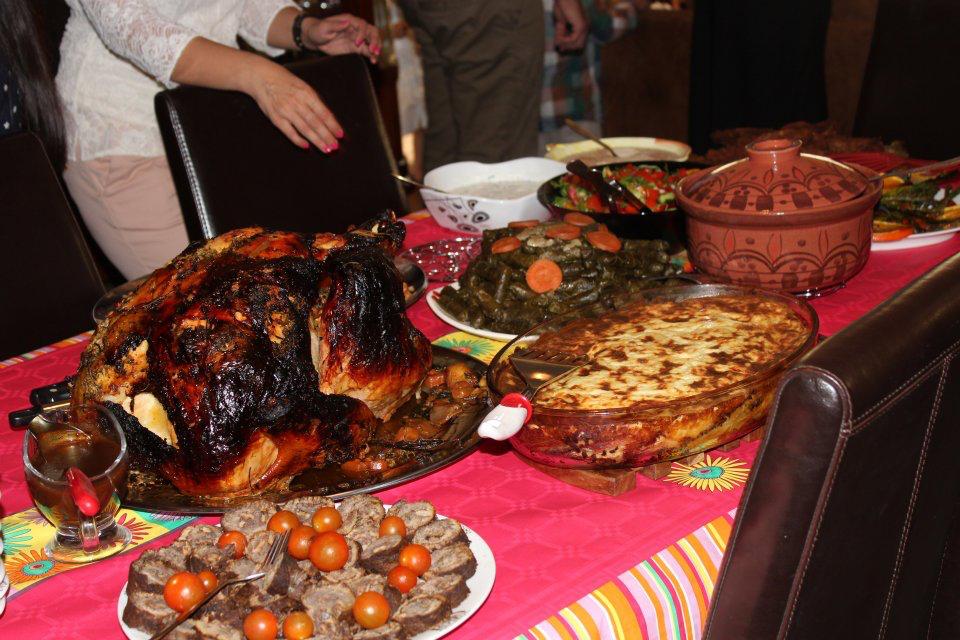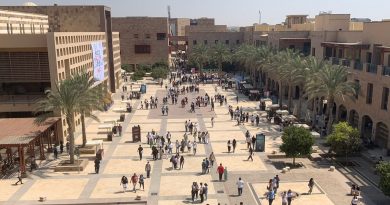Who’s Getting Roasted at the Dinner Table, Me or the Rotisserie Chicken?
By: Farah Rafik
@farahrafik
Yassmina Adham remembers sitting at the dinner table wondering if it was she or the rotisserie chicken getting roasted.
The family was discussing mental health issues among young people in Egypt, and she didn’t like what she was hearing.
“Mental health is a big issue for me. I do not handle jokes about it nor do I allow anyone to belittle it. In a family as big as mine, it is so easy to throw jokes here and there. However, there was this one comment which irked me,” Adham, a political science and economics major, said.
Adham had explained to her family that mental illness can often be caused by upbringing. She was told that she was foolish to think that parents could have an impact on their mental health.
One of her family members said Adham had been brainwashed by such thinking.
She got up and left the dinner table.
While this generation is driven by the idea of making its voice heard, empowered by technology, to openly discuss controversial views, topics, and opinions, it may find strong resistance from the older generation
Adham learned that the hard way.
She eventually returned to the table to avoid more drama or add to the awkwardness that had already been festering, but the experience left her contemplating how her parents dealt with mental health issues when they were her age.
“The generation gap is increasing as Egypt’s children and teens are becoming more independent while their families are trying to hold on to collectivistic views,” Jaime Mendoza, associate professor of practice at the department of Psychology, said.
Mendoza says such disparities in belief systems are due to the effects of technology and social media. He explained that these are allowing the younger generation to explore, experience and reflect on what is happening around the world.
And, inevitably, what young adults learn online from other cultures around the world is something they often bring to the dinner table.
Anthropology and economics major Tia Aziz, 20, acknowledges that there are some issues which are potential minefields.
“As a social sciences major, I constantly try to shed light on issues which I think are pressing by communicating them to to my family. However, topics like the political atmosphere in Egypt and gender relations as well as social conformity automatically make me labeled as westernized and someone who has abandoned her culture,”she told The Caravan.
Although Mendoza believes that the generational gap is getting wider, he nonetheless believes that narrowing it is possible, and that the solution actually lies in spending more time at the dinner table and at home.
“Change is never easy. The key is for families to spend time with each other, talk about their weekly experiences and discuss new views. We are forgetting to have a meal together so that we connect with each other instead of just accomplishing a task,” Mendoza said.
Malak Sherif, 20, psychology major, says she knows to steer away from topics that might be controversial with her extended family.
“My issue is not with my parents. My issue is with the family I do not see often because they have engraved this picture of me inside their heads. When a topic like homosexuality is brought to the table, I am automatically bombarded with judgmental looks and comments,” Sherif said.
Sherif says that after a “clash” occurs the mood at the dinner table quickly descends into awkwardness and evident disappointment.
But Noha Fikry, adjunct faculty at the department of Sociology, argues that the generational gap is not necessarily getting “wider” as this assumes the divide can be measured in quantitative terms – an approach she disagrees with.
She believes, however, that this gap is now felt, expressed, and experienced in a variety of ways which might be much more explicit and salient than ever before – perhaps with the dominance of social media as just one outlet through which this is intensely felt.
Fikry pointed out that the middle ground between families and youth can be reached.
“A middle ground might also be reached through looking for how children constantly maneuver their familial roles and expectations in indirect, socially savvy, and very creative ways – how do siblings support each other’s trajectories when parents disagree, for example,” Fikry added.
Fikry believes that finding compromise is a default setting for family survival and that we only need to slow down, take a breath and be open to discussion.
There are numerous studies on the significance of transition from traditional values and thoughts into modern. The studies aim at highlighting the transitionary period and the possible factors that contribute to this transition as well as their repercussions.
In their seminal work When Generations Collide, authors Lynne C Lancaster and David Stillman determined that very particular social, cultural and economic experiences shape each generation.
These include what communication tools we use and how we use them, what issues dominate the day, conflict and resolution, and so on.
This generation is more prone to adopting individualistic thinking and living that was not entirely present in their parents’ generations, and this is largely due to the freedoms introduced by social media.
In Egypt, the 2011 Egyptian revolution revealed that there was a generational divide over core political and social values. While some nicknamed this the Twitter revolution, many parents blamed Western brainwashing for the uprising.
In his political science graduation thesis at AUC, Zeyad El Kelani highlighted that the revolution took root in the dissatisfaction and frustration of the younger generation with ‘political censorship’ and ‘injustice’ which plagued the political landscape at the time.
The younger generation desired political systems which were more liberal, less religious and more democratic, thus the 2011 uprising was considered to be natural breakthrough of the domination of these appearances, El Kelani says.
Political Economy Professor at Durham University, Emma Murphy was interested in understanding the relationship between youth activism through her study of generational gaps.
Murphy had been interested in youth activism with a special highlight on the Arab uprisings back in 2011.
Through her academic career, Murphy highlighted how the younger generations differ completely from their parents in terms of how how they express their opinions, the tools which they use to express them, and their rejection of the idea of surrendering to the “failed” Arab states in which they live.




